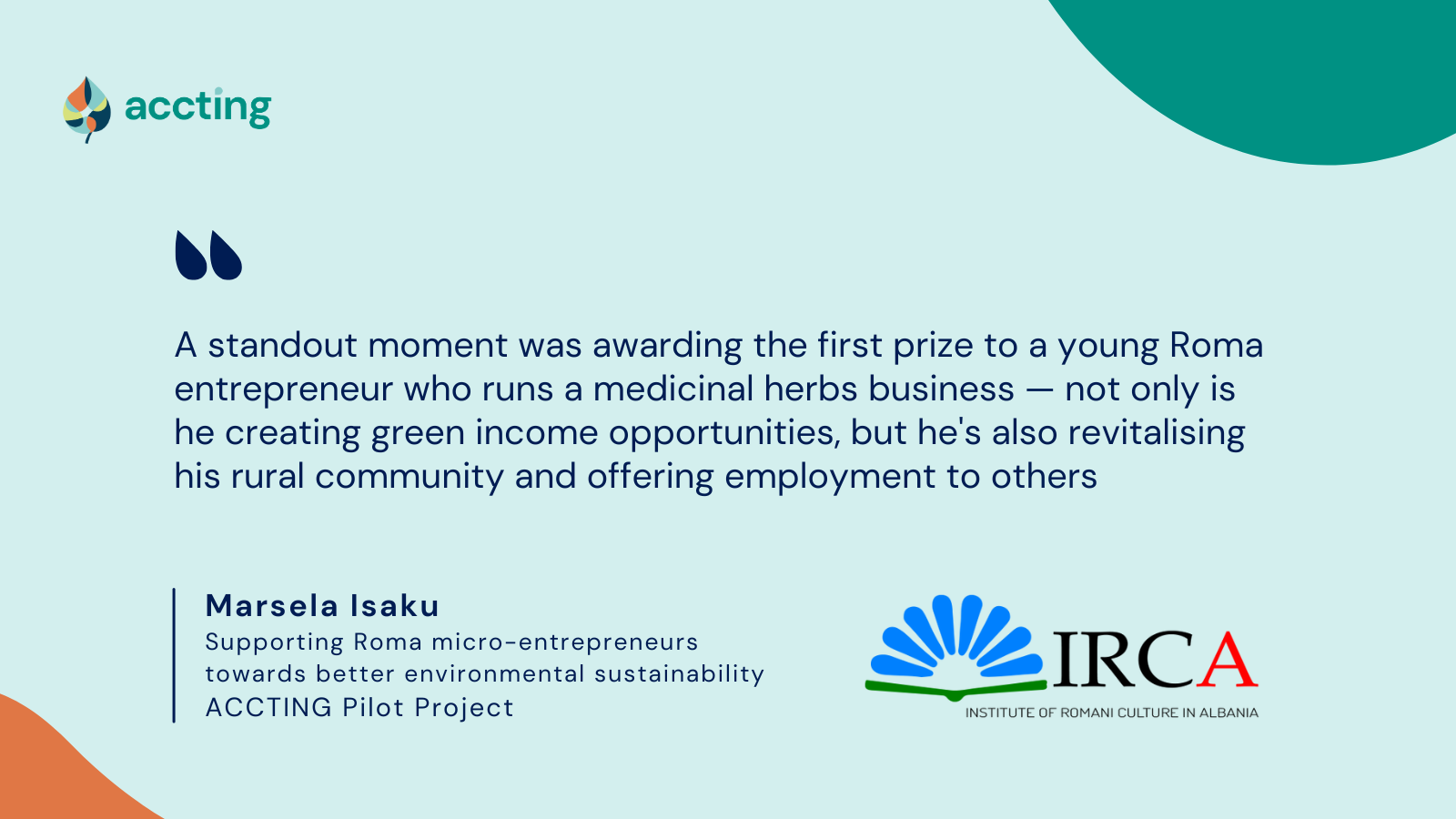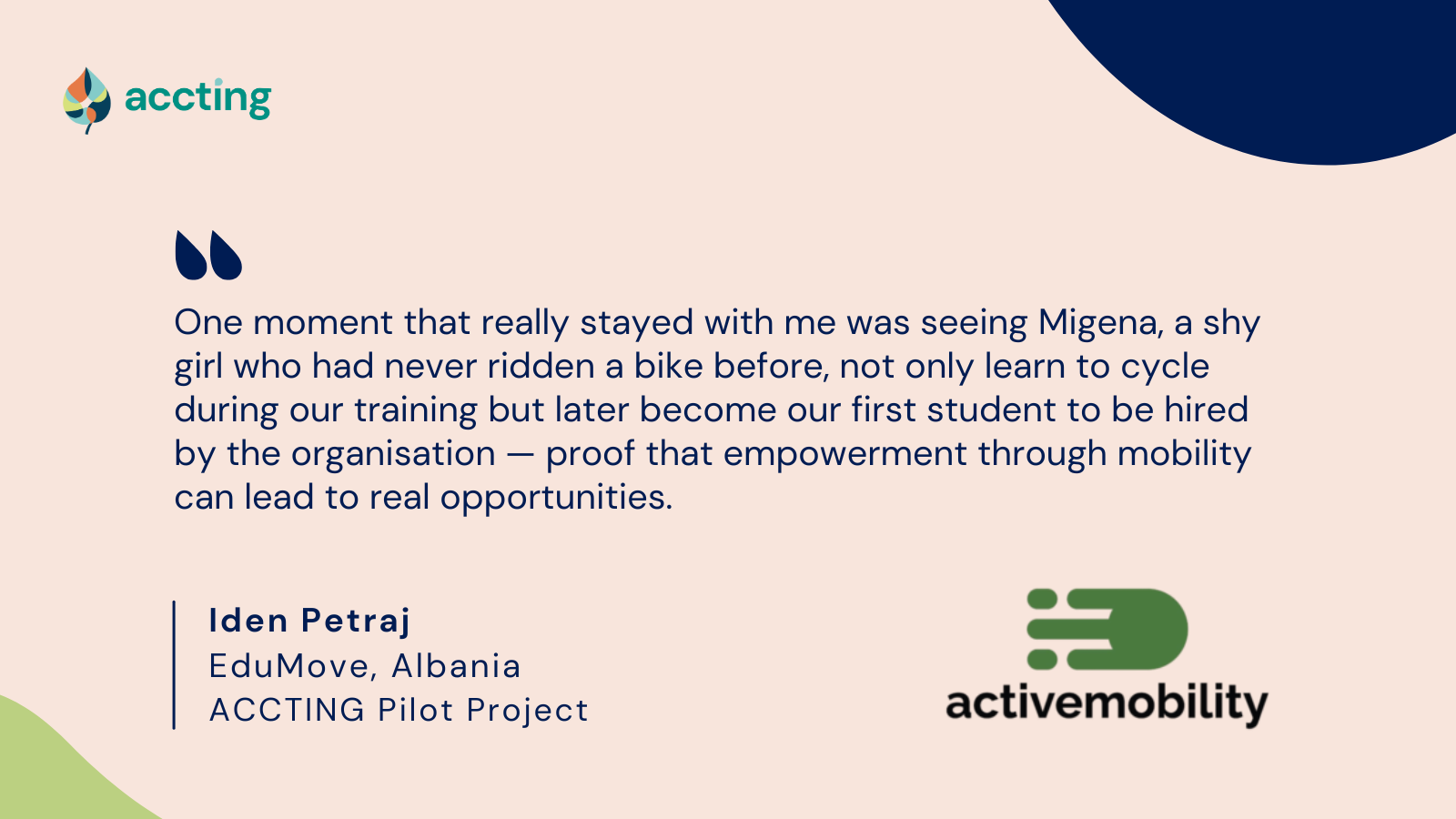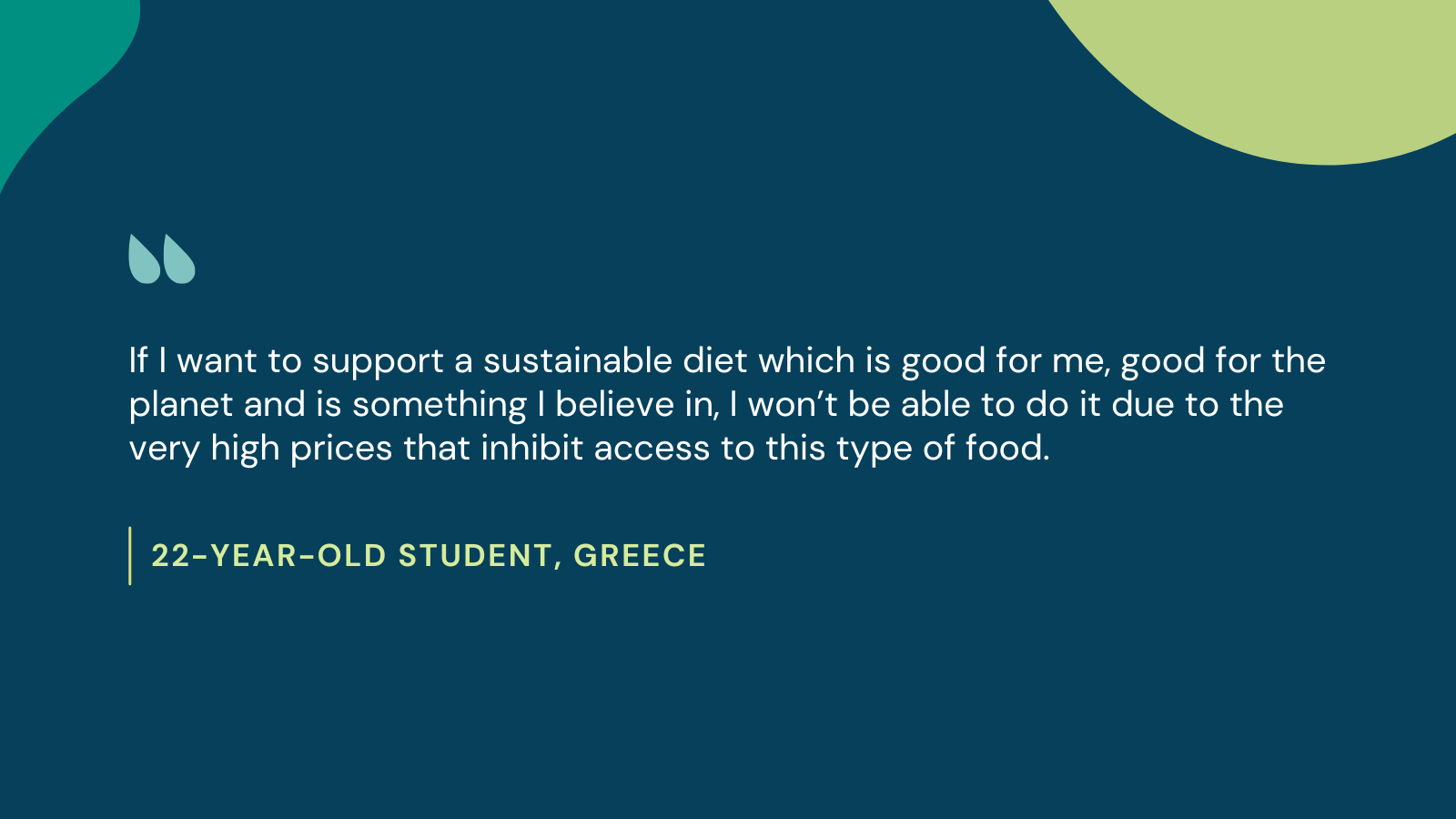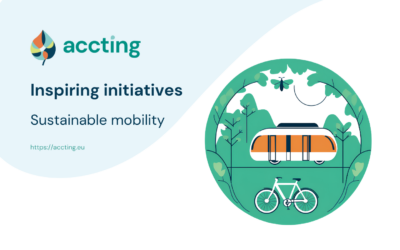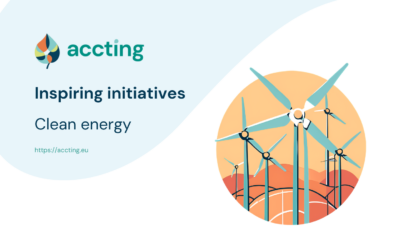The impact of climate change and the capacity to mitigate its negative impacts are unevenly distributed across and within societies; it is the poorer, marginalised and vulnerable groups who are the most acutely affected. ACCTING has collected 358 narratives via individual interviews in 13 European countries to capture some of the experiences of those vulnerable groups. These narratives on inequalities in enablers and hindrances for advancing behavioural change span eight thematic research lines – each addressing an EU Green Deal policy area. Read our dataset including all 358 narratives collected.
In Italy, a family micro-enterprise pursues energy saving and recycling
“My name is Federica, and I am a 40-year-old entrepreneur. I am married and have a four-year-old son. I graduated in medicine and surgery, but a year later, I came down with a lung disease that will make it impossible for me to enter a hospital for the rest of my life. I, therefore, had to ‘reinvent’ my life. I took a second degree in business economics, and then I did a specific course which was of no use to me; because what ‘really’ means to be an entrepreneur I then learned from reality. I think that trade associations, however, should improve their support to enterprises. After several jobs, all with fixed-term contracts that never lasted more than a year, but anyway very useful, I decided to start my own business with my husband. We started with nothing. We bought a truck with promissory notes. We proceeded in small steps by investing everything we had.
Now, we are a micro family enterprise where my husband and I work, with just one employee. We are in the process of hiring a second one to replace the one who was there and we had to dismiss due to theft. We deal in the recycling of metal/recyclable materials (aluminium, steel, copper, brass, iron, bronze) and intermediation of non-hazardous waste (paper/cardboard, wood, plastic/pvc, aggregates). The company was established seven years ago. We have a fair turnover. We have obtained several certifications that are very important for us. We have a warehouse and a truck for transporting materials. The warehouse is rented out and will have to be decommissioned within a few years because with the expansion of the close urban area, it is now in a residential area. We had asked the owner to install solar panels to power our machinery (the cost is around €3,000 per month), but as the roof would have to be redone, he refused. For these two reasons, we are looking for a new warehouse to move into. We intend to buy it and then run it as we see fit. We will certainly install solar panels in the new warehouse. We have already identified an appropriate site. However, moving in the new warehouse will take two years/two and a half years, also because it takes a long time to obtain authorisations for our activities. In 2019 we replaced the old, outdated lighting system with a new-generation LED system, which is more efficient and consumes much less energy. We also replaced the old truck with a Euro 5 truck that consumes less fuel. We have purchased machines that serve to reduce the debris and thus allow more of it to be brought in, saving further fuel. We also try to organise transport in such a way that, as far as possible, there are no trips where it goes empty. For the material that is transported to our shed, we have set up a booking system on our website to avoid as much as possible the trucks queuing with their engines running, wasting fuel. Finally, we have digitalised all our transactions to avoid paper consumption and we have nearly eliminated plastic. We want to improve ourselves further, moving to the new site, further improving the production process with more space, better machinery (4.0) and being a company that recycles and reuses materials suitable for someone else’s production process. Something completely different from what the old scrap dealers used to be. To a large extent we already are.
“I think that enterprise associations should do more to help entrepreneurs”
We have not made use of incentives or financial contributions in the past, but we hope to do so in the future, even though these are often costly practices. Once we tried in the past and had to spend 2,000 Euro for a consultant, but then (although we scored excellently) we did not get the financing. There would also be calls related to the circular economy that would be interesting, but we are too small. We would have to get together with others, which is difficult, as we are competitors. Alone we do not have the strength. Looking at the other companies, I see a clear break. There are important companies that have adapted to the circular economy while, unfortunately, most of the micro-enterprises, like ours, are struggling to fit into this new context. 60% because of ignorance and 40% because of lack of will. A lack of interest, not a lack of competences. In the same sector of my enterprise, there are mostly people who have been doing a similar job for at least two or three generations and have the same way of doing things, often also using very polluting means of transport and do not care about energy efficiency. They probably save money by doing so at present; but soon they will be at a crossroads: either they will adapt or they will have to stop their activity. With these micro-entrepreneurs there are often discussions, but then everyone goes their own way. With suppliers and customers, we try to be as helpful as possible by meeting their needs (e.g., regarding payment timeline or transport arrangements; we are also competitive because we are willing to buy the materials for recycling assembled – and not already divided – and then we can sort them ourselves). However, we are uncompromising about the way we work, including the rejection of cash payments (in black) and we have lost a lot of clients for this reason. In the end, this pays off. 2020 was a very tough year. We benefited from a subsidy of 25,000 Euro against the many (much higher) costs we had to bear with production stopped for a few months. But in 2021 we achieved a higher turnover than in 2019. However, it is not a good time, due to price volatility and the difficulty in selling our ‘product’ (due to Covid, plus the economic crisis, and war). With great difficulty, we are able to keep our suppliers, even buying large quantities of material to prevent it from being sold to someone else, and we have to keep it before we can process it and then manage to sell it. Now, finally, bit by bit, we are selling.
“Most of the micro-entrepreneurs working in the same sector as me do not care about energy efficiency and environmental issues in general”
In the future, I hope my company will grow (having from 7 to 10 employees) by benefiting from the latest-generation machinery and with very few emissions. My culture and my family have been very important. They taught me humility, and a willingness to learn, which have been indispensable in my entrepreneurial life. I am passionate about it; I study various issues personally (including legal aspects). First, there are ethical aspects, and then comes energy efficiency and the environment. Finally, I am the same person at home as in the enterprise. And the house is already mine and I am already in the process of installing the solar panels.”

